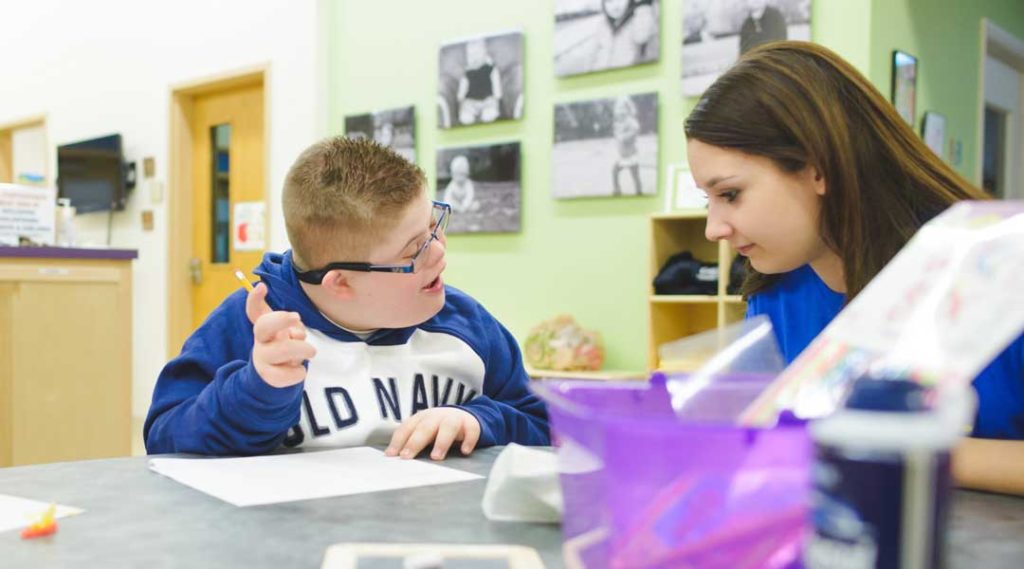The Role of Pupil Success Stories in Highlighting the Benefits of Russian Math for Learners
Student success stories act as compelling proof of the benefits offered by Russian mathematics education and learning. These narratives often show just how organized techniques bring about substantial enhancements in analytical abilities and important thinking. Ivan's exemplary skills and Maria's transformation from battling trainee to competitors winner exemplify this effect. Such success question concerning the broader ramifications of these experiences. What can be discovered from these tales, and just how might they affect future learners?
Recognizing the Foundations of Russian Math
Often shrouded in complexity, the structures of Russian mathematics are rooted in an unique academic approach that emphasizes analytic and important reasoning. This technique prioritizes deep understanding over memorizing memorization, encouraging pupils to involve with mathematical concepts actively. The curriculum is structured to foster analytical abilities, typically incorporating academic principles with sensible applications. Educators play an important role, utilizing approaches that challenge students to discover numerous problem-solving techniques and team up with peers.Central to this educational version are extensive standards and a strong emphasis on logical thinking, which cultivates strength and flexibility amongst students. The emphasis on fundamental principles allows students to construct a strong mathematical framework, outfitting them with devices to deal with intricate problems. This rigorous training not just prepares pupils for innovative study in maths yet additionally imparts a long-lasting recognition for the self-control, forming their capacity to assume critically in diverse contexts.
Highlighting Private Success Stories
Success stories in Russian maths usually exhibit the effectiveness of the nation's strenuous academic framework. A young trainee named Ivan showcased remarkable analytic skills after getting involved in a regional Russian math program (Student Success Stories). His capacity to tackle intricate mathematical ideas at an early age attracted the attention of peers and educators alike. Likewise, Maria, one more trainee, proceeded from having problem with standard math to winning regional mathematics competitions within a year, highlighting the transformative possibility of this educational approach.These private narratives function as powerful testimonies to the benefits of Russian mathematics, illustrating just how organized methods and a deep concentrate on foundational abilities can result in considerable scholastic achievements. The experiences of trainees like Ivan and Maria not just inspire their peers yet also strengthen the value of a durable mathematical education and learning. Their success stories reverberate with parents seeking efficient knowing courses for their youngsters, even more advertising the appeal of Russian maths
The Impact of Conceptual Recognizing on Knowing
They are better geared up to apply their understanding to fix complicated troubles when pupils establish a strong conceptual understanding of mathematics. This understanding serves as a structure that enables learners to make links between different mathematical concepts, fostering deeper cognitive involvement. In Russian mathematics programs, focus on conceptual knowing nurtures a state of mind that values understanding over memorizing memorization. Trainees are motivated to explore underlying concepts, which enhances their capacity to factor and assume seriously. This approach not just aids retention but likewise equips learners to adjust their understanding to unique situations. Furthermore, a strong theoretical grasp of maths can lead to increased self-confidence, as pupils find themselves with the ability of dealing with difficult material. As they recognize the connections in between principles, they become extra proficient at discussing their thought procedures, better strengthening their understanding. Inevitably, a concentrate on theoretical understanding in mathematics education considerably boosts the general discovering experience for students.
Enhancing Problem-Solving Abilities With Real-Life Applications

Building Self-confidence and Resilience in Trainees
Self-confidence and strength are necessary attributes that empower trainees to navigate the obstacles of finding out mathematics. The Russian Mathematics technique emphasizes analytical and critical reasoning, cultivating a positive discovering setting where trainees are encouraged to tackle difficult concepts. As they engage with complicated issues, students create a feeling of success that improves their self-esteem. Effective conclusion of challenging tasks enhances their belief in their capabilities, making them a lot more going to take threats in future mathematical endeavors.Moreover, the repetitive nature of Russian Mathematics urges perseverance. They are shown to view these minutes as chances for growth rather than failings when pupils come across problems. This mindset grows resilience, allowing them to jump back and proceed going after understanding. By developing these traits, trainees not only master maths but additionally acquire beneficial life skills, preparing them for obstacles beyond the classroom.
Comparing Conventional Math Approaches With Russian Mathematics

Educating Approach Distinctions
Several educators acknowledge considerable distinctions in between typical math training methods and the Russian strategy, which stresses theoretical understanding and analytic. Typical approaches frequently concentrate on rote memorization and step-by-step tasks, focusing on fast calculations over deep understanding. In contrast, Russian math motivates trainees to discover mathematical ideas via a range of methods, fostering critical thinking and creativity. This approach regularly entails joint knowing, where trainees interact to review remedies and concepts. Furthermore, Russian mathematics incorporates real-world applications, making mathematical concepts a lot more interesting and relatable for students. These differences highlight the unique strengths of the Russian method, which aims not only to teach math skills however also to develop a strong mathematical mindset that can be applied throughout numerous contexts.
Problem-Solving Approaches
While conventional mathematics methods often emphasize step-by-step procedures to come to options, Russian mathematics focuses on a more alternative approach to analytical. This technique urges trainees to explore several techniques, fostering creativity and critical reasoning. In traditional settings, pupils might rely heavily on memorization and procedural knowledge, frequently resulting in a narrow understanding of concepts. Alternatively, Russian mathematics promotes deep understanding, allowing students to attach mathematical concepts to real-world applications. By presenting problems in diverse contexts, Russian math obstacles trainees to think outside package and create flexible reasoning skills. This aberration in approaches not only enhances analytical abilities however also constructs resilience in students, outfitting them to take on complicated challenges with self-confidence and innovation.
Urging a Lifelong Love for Knowing in Mathematics
Maths frequently evokes anxiousness in students, promoting a real excitement for the topic can change their educational experience. The Russian Mathematics method highlights understanding concepts as opposed to rote memorization, motivating inquisitiveness and expedition. By involving students in challenging yet satisfying problem-solving tasks, they create a much deeper gratitude for mathematics as a dynamic field.Success stories from students highlight just how this approach supports an enthusiasm for discovering, leading to an extra extensive connection with mathematical concepts. These narratives highlight the significance of determination and creativity, demonstrating that mathematics is not just a subject yet a tool for vital reasoning and real-world application.As pupils encounter and get rid of difficulties, they develop resilience, reinforcing the idea that understanding is a lifelong trip. This point of view motivates them to seek more studies in mathematics and relevant areas, inevitably cultivating a generation of passionate, positive mathematicians.
Often Asked Questions
What Age Team Benefits Many From Russian Math Programs?
The age team that benefits most from Russian math programs normally varies from very early primary to intermediate school. This duration cultivates important thinking and analytic skills, crucial for mastering advanced mathematical concepts in succeeding instructional phases.
Just How Can Parents Assistance Their Children in Russian Math?
Moms and dads can support their youngsters in Russian math by providing a conducive learning atmosphere, urging consistent technique, engaging with teachers for insights, fostering a favorable attitude in the direction of obstacles, and celebrating achievements to enhance confidence and inspiration.
Exist Online Resources for Russian Mathematics Learners?
Several on-line resources exist for Russian mathematics learners, including interactive systems, have a peek here educational videos, and online forums. These devices boost understanding and engagement, providing pupils with diverse learning opportunities to strengthen their mathematical abilities efficiently.
What Credentials Do Russian Math Instructors Usually Have?
Generally, Russian math teachers have postgraduate degrees in maths or education. Many have substantial mentor experience and are learnt specific methodologies that highlight analytic, essential thinking, and a deep understanding of mathematical concepts.
How Does Russian Mathematics Accommodate Different Understanding Styles?
Russian math fits different discovering designs with varied training approaches, fostering logical thinking and analytic skills. Instructors utilize visual aids, hands-on tasks, and collective workouts, guaranteeing trainees engage with mathematical principles in methods that reverberate with their private choices. A young pupil named Ivan showcased exceptional analytical abilities after taking part in a neighborhood Russian mathematics program. Maria, another pupil, proceeded from having a hard time with basic math to winning local mathematics competitions within a year, highlighting the transformative capacity of this educational approach.These individual narratives serve as effective testimonies to the advantages of Russian mathematics, showing exactly how structured techniques and a deep emphasis on foundational skills can lead to significant academic success. The Russian Math technique highlights essential and analytic thinking, fostering a positive knowing environment where pupils are urged to deal with hard principles. In comparison, Russian mathematics encourages pupils to explore mathematical principles through a selection of approaches, promoting vital thinking and imagination. By providing troubles in different contexts, Russian mathematics challenges students to think outside the box and establish adaptive thinking skills.